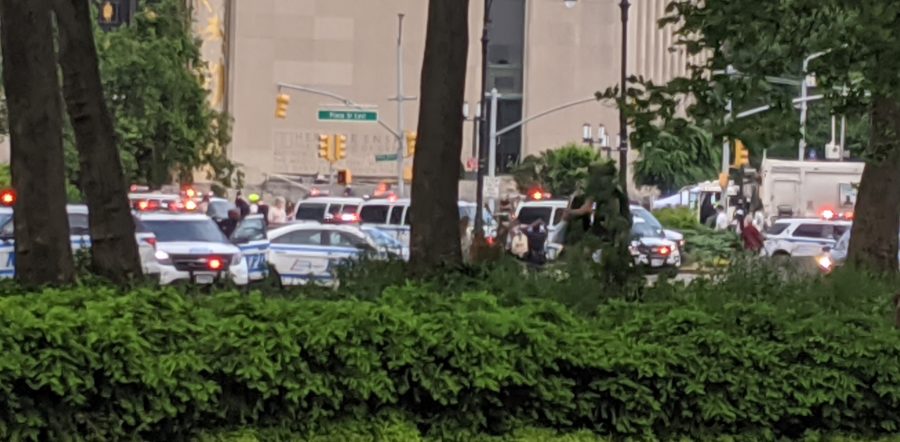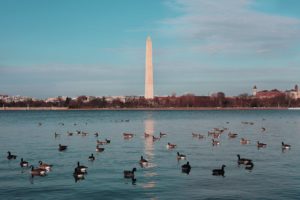[Note: I’ve been working on a post to reflect and to call for change in response to the rash of deaths to black people. That post became unwieldy, so I’m going to break it up into a short series of posts, of which this is the first.]
One morning my brother sent me a disturbing video recorded while a group of people asking a police officer to stop. An officer grabs an upset kid, slaps them, and throws them face down before pressing a knee on their neck and keeping it on for the rest of the video.
CW: Police violence
— Rebecca Kavanagh (@DrRJKavanagh) May 3, 2020
This evening in Manhattan, an NYPD officer approaches a group of people filming an arrest, deploys his taser indiscriminately, then grabs a young man and, without provocation, slams him to the ground, starts beating him and, with another cop, handcuffs him. pic.twitter.com/N6bENczkOU
“I guess that’s another thing that cops do now…” I immediately thought, making another entry in the list of things that to fear in case I have interactions with police on the street, at the train station, and in my school.
The mental recovery for watching something like this ends up demanding some active and passive work. There are plenty of sources to trigger this fear, from videos to stories from my students. These events will keep replaying in my mind for the next few hours or days. To prevent being haunted by these replays forever, I have to think through different ways that I could survive if I were in that scenario. “Maybe If I had my phone out? Maybe if I kept my distance? Maybe I shouldn’t confront the officer?” Eventually, I’ll come up with a string of ‘maybes’ and ‘what ifs’ that convince me that I’ll be safe, or at least convince my subconscious to stop the haunting replays.
By now I have a little database of expected violence and imagined responses, and it’s maintenance is a big part of what gets me out the door when things like this surface. Imagine how it must be for a kid who has to process facing a lifetime of these kinds of violent cases. I’m a 38-year old man and not only am I still haunted by Trayvon Martin’s 911 call, I still haven’t watched the full George Floyd video. How quickly are we expecting kids to process police violence they witness online, in their neighborhoods, and in their lives knowing they have to face uniformed police officers when they walk in the door? Who pays the consequences if they aren’t able to immediately get past these violent events?
Jerks In Schools
Let me start by saying I am a huge fan of the officers in our building. Some students have better relationships with the officers than anyone on our staff. When incidents happen, they can de-escalate students, and manage the crowd, and collaborate with our Restorative Justice coordinator. I’ve worked with great youth officers and community engagement officers for our local precinct as well. We are lucky to have these awesome people. The only downside with them is that they all have to operate within the larger NYPD culture where people often act like di… for now let’s call them ‘jerks’.
One of these jerks will swagger into our school and make snide comments about or towards our students, ignore our school culture and approach, and/or attempt to intimidate and post while they do what they came to do. These officers embody the antithesis of any school culture, they also represent a big part of the police culture. Kids have lots of awful, triggering stories about cops safety agents acting like full-on jerks in school. Yet it seems like the NYPD and even the President, support and defend this approach. You’ll see awesome officers moderate get quiet and tighten up around the jerks come around, while the jerks seem to dial it up. As big incidents involve more officers, it’s more and more likely they a jerk will get involved, and all of a sudden, everyone starts acting like jerks. An organizational culture that defers to this kind of policing is poisonous, especially poisonous for Black and Brown students who most often bear the brunt of these jerks’ wrath.
What do we want cops to do?
The cops are doing their job, and we, as Americans, define that job. We, as Americans, also have a lot of bias, especially when it comes to people of color. When turn over unsettling events in their subconscious, many Americans find resolution by imagining violent police officers showing up and beating the bad guy. Amy Cooper’s subconscious imagined a cop that would show up and fight violently on their behalf against the “bad guy”. Police officers should be there to face our darkest fears, but some of America’s fears are VERY dark. Deep down, enough of us want police to relentlessly arrest black and brown teenagers and get them into the prison system early that we have an internationally unprecedented incarceration rate as a result. While extreme, Amy Cooper, BBQ Becky, and Sidewalk Svitlana(?) are examples of what some people expect the police to do. We need to nationally redefine what it is police are supposed to be doing and include in that clear ideas of how to support black and brown teens. If we can’t do that quickly, then let’s create a school security department that seeks to put the student needs first?
We would have to change society to see the change in policing that we need. We don’t have affordable housing, adequate services for the mentally ill, and racially disparate economic outcomes, for starters. Unmet needs can eventually become police issues, and when they address it, it can put people in our huge, expensive prison population, or worse. Eric Garner, facing scrutiny for selling a cigarette Eric Garner and George Floyd both had minor economic infractions that ultimately had deadly consequences. One alternative to having massive police departments and correctional facilities is investing more in programs and benefits so fewer police actions are needed. Another is to not have cops escalate situations and make them violent. However, if we continue to have this brutally unequal society, there will be calls for violent police officers to police it, and we should consider how to shield our black and brown students from the negative consequences of this policing reality.


Leave a Reply